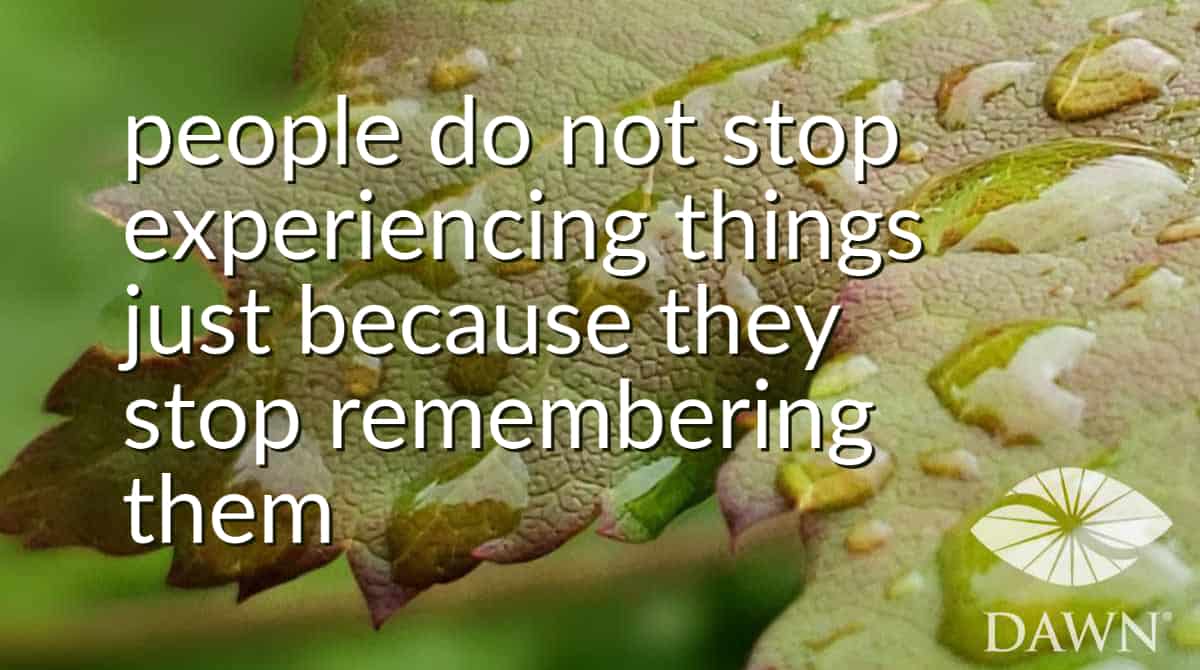
Back to your DAWN Dementia Roadmap to caring for someone with dementia at home
Dementia and Phone Conversations
How can we more successfully talk on the phone with someone who has dementia? We baby boomers and Gen-Xers are a very mobile generation. Not many of us live in the same city or town we grew up in, so many of us are trying to stay in touch with aging parents who live far away. We can’t just drop by to see how they are doing.
For many families, the primary means of contact is still the telephone, because using Skype and Facetime requires learning new skills. But when a parent is experiencing dementia, or even mild cognitive impairment, having a good phone conversation becomes difficult. So how can we have positive phone experiences with someone who has dementia?

Of course, we expect that, due to memory loss, people who have dementia will have trouble recalling what they did earlier in the day, let alone what’s been happening during the past week. And, we know that how much they can remember will diminish as time goes on. At first, you may find that it helps to ask leading questions by including a fact or two (i.e. “Dad, did you have coffee with your friend George this morning?”). In the earlier stages of dementia, memories sometimes become available when we prompt with a few facts.
Focus on communicating your love & resist the temptation to correct them
However, not only do we need to keep in mind that the ability to use recall will fade away, we also need to keep in mind that people experiencing dementia sometimes recall dreamed events as being real, because they become unable to distinguish between dreams and reality. We should not assume they are purposefully misleading us.
Rather than focusing on what’s true or factual, it’s better to spend our time on the phone communicating our love and desire to spend time with them. We shouldn’t expect verifiable facts from someone who’s losing memory and rational thought. What someone with dementia says has happened is possibly true, but not necessarily true.

So don’t correct, or question the validity of what your loved one says. Focus on what matters: that you love them and enjoying talking with them.
Pass along a positive mood
Treat a phone call as your chance to brighten your parent’s day. When he becomes unable to recall his own experiences, use your calls as a chance to tell him what you’ve been up to the past week. Recall and retell a favorite memory from your childhood or your times together that you know are happy times for him, too.
Use your phone call to sing songs with your mom, or her favorite hymns, or tell her stories of things she did for you that enriched your life. Your goal should be to give her the experience of having your full attention, and to communicate your caring by recalling happy times for her that she cannot recall on her own.
Prepare topics beforehand
Before you call, write down several incidents from your own week that you know your loved one would enjoy hearing. You’ll be able to stay on the phone longer, avoid awkward pauses, and truly communicate that you want to spend time with them. Every time they return to asking about the weather, or how you are, take that as your cue to share another anecdote. When someone with dementia makes a general comment about the weather or how nice it is to hear from you, he or she is trying to keep the conversation going without the aid of memory—not communicating a lack of interest.
Most importantly, remember that moods seem to last longer for people who have dementia than for those of us with healthy brains. If you take care of providing the stories and anecdotes for your conversation, your loved one will experience companionship and love—and not feel that they have failed at conversation. They will retain a sense of being loved that will last long after you hang up.
Back to your DAWN Dementia Roadmap to caring for someone with dementia at home

